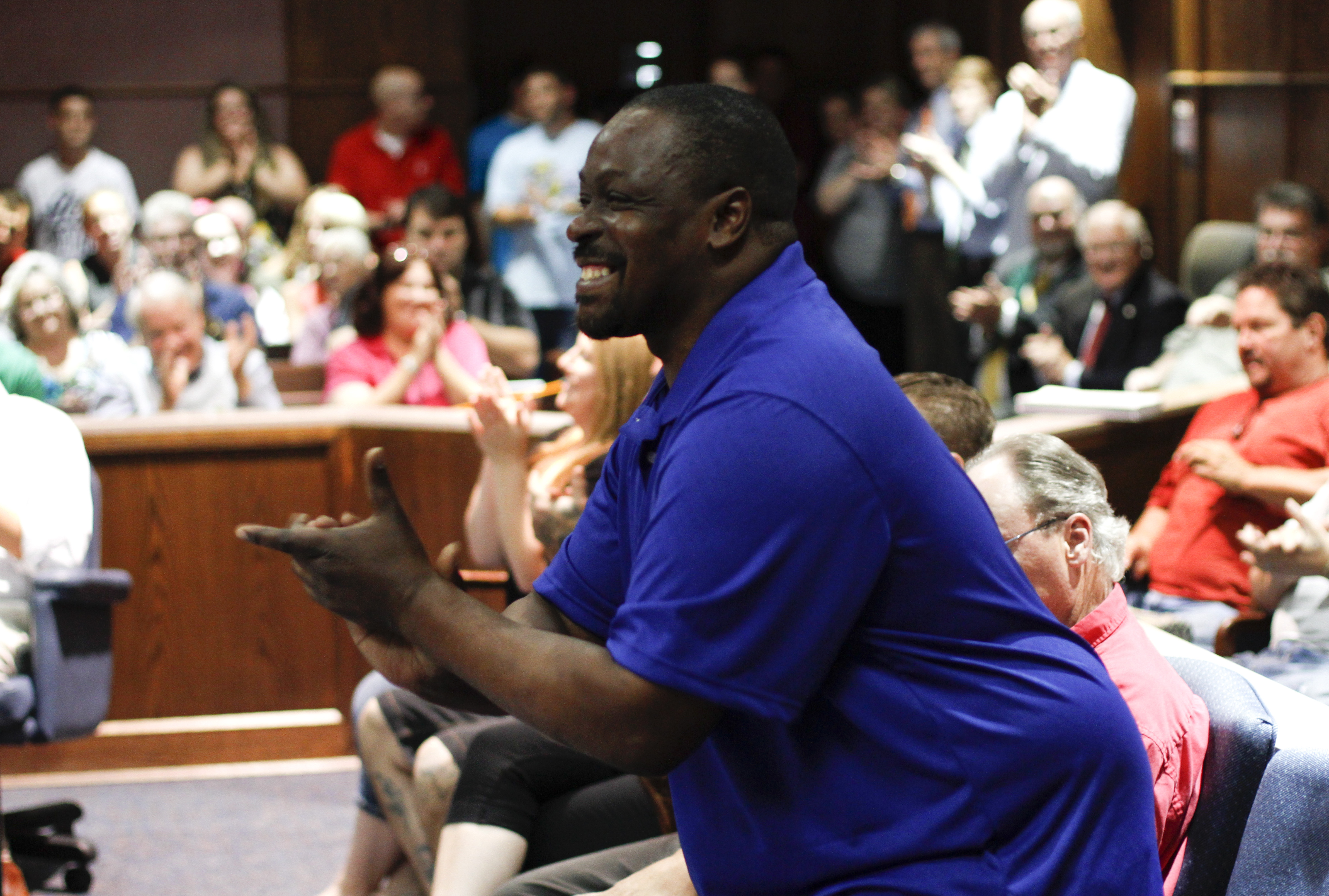Despite her years behind the bench watching lost causes transform into new people, even Criminal Court Judge Rebecca Stern shook her head when she heard his name two years ago - Jonas Richardson Jr.
The 46-year-old man had hovered in Hamilton County courts for decades. Court officials can count at least 96 times he's been arrested and sent to jail, mostly for theft charges. Fishing money out of Republic Parking cash boxes was his specialty.
The money fueled the drugs; the drugs kept sending him back to jail.
His mother Vera Davis prayed, hoped, but never dreamed things would change after all these years.
But one of his many lawyers, David Barrow, told him to give Hamilton County Drug Court a try.
When his name was spoken in the halls of the courthouse a few callers rang the drug court coordinator's phone.
"They said he'll never make it," Elaine Kelly said.
But he needed drug court.
"My life, it was just a hot mess," Richardson said.
On Monday, Richardson became the 100th graduate of the program in its eight-year existence.
Stern took a moment to tell Richardson's story to the crowd and confess her initial doubts.
"Thankfully I was wrong about that," she said.
A typical drug court client takes between 18 months and two years to finish. Richardson hit his two-year mark upon graduation.
It was in 1985 when Richardson first tried crack cocaine. He was alone in Atlanta.
His 190-pound high school football nose guard physique withered to 125 pounds and he ended up living on the streets in the next few years.
He returned home to Chattanooga in 1992, moved back in with his family and entered drug rehabilitation. His sobriety lasted nine months and then he moved to New Orleans to be with a girlfriend and work a construction job.
The job ended, the drugs began again and he knew he had to leave the woman or he'd drag her down into his addiction.
From that point onward he spent most of his life unemployed, in and out of jail and fishing for cash to feed his daily habit.
Family and friends loved him; they still say he's a big-hearted man. But they knew he had to want to change. Years passed.
"I feel like I was beating myself up," Richardson said. "I had to break the pattern of incarceration. I was getting too old. Young guys coming in [jail] and I had to fight. I didn't want to live like that."
On Monday he was the last of six graduates to stand before the crowd and receive his certificate, his diploma and graduation to a new life.
His cousin, Jermaine Harper, stood on one side, clasping Richardson's neck and patting his shoulder.
"I would always joke with my big cousin that I'd purchased a life insurance policy on him," Harper said before congratulating Richardson before the 100-person crowd.
The clients of drug court vary in all ways, demographic and addictions.
But Kelly sees something universal with Richardson.
"It just shows you it's not based on drugs, age, race," she said. "It's based on willingness to change."
